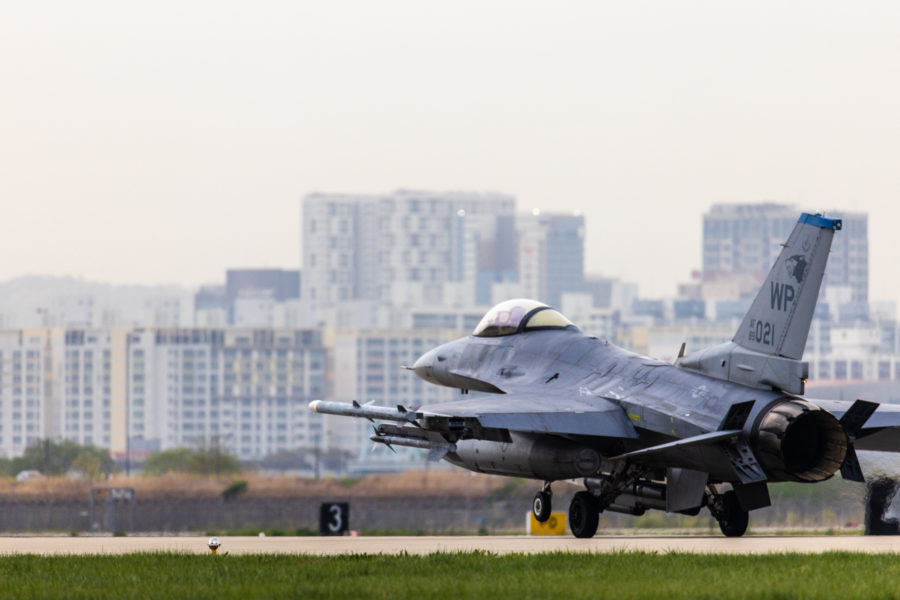Following the third crash of a U.S. Air Force F-16 in South Korea in nine months on Jan. 31, the head of the 7th Air Force released a statement saying the incidents do not appear to be related.
Some USAF flight operations have resumed on the Korean Peninsula after a brief pause, Maj. Gen. David Iverson added.
The latest crash occurred after the F-16 suffered an in-flight emergency over South Korea’s southwestern coast. The pilot ejected and was recovered safely within an hour of the crash and transported to a local medical facility for an assessment. The jet went down in the ocean.
The two previous incidents occurred May 6 and Dec. 11 last year. No personnel have been injured in any of the crashes.
In December, an F-16 from Kunsan Air Base was flying over the Yellow Sea, which borders the west side of the Korean Peninsula, when it suffered an in-flight emergency. The pilot ejected safely. The investigation of that incident is in its “final stages,” Iverson said in his statement.
Last May, a routine daytime training sortie went sour when something went wrong and the pilot ejected near Osan Air Base, about 80 miles north of Kunsan. The fighter made a fiery impact in a local field, which was captured by local cameras. Iverson said the incident has been investigated, but results have not been released. Air Force Accident Investigation Board reports are typically published.

After the latest incident, the 7th Air Force paused flying operations to focus on search and recovery operations. Iverson said “some” flying ops began again Feb. 1, though he did not specify which.
“I also want to acknowledge that this is the third F-16 crash on the peninsula in the last nine months. Thus far, including the preliminary findings from yesterday’s mishap, there are no indications these incidents are related,” he said.
From 2010 to 2021—the latest year for which the Air Force Safety Center has published statistics—33 F-16s have been destroyed in mishaps, or 2.75 per year. Six fighters each were destroyed in 2013 and 2015.
